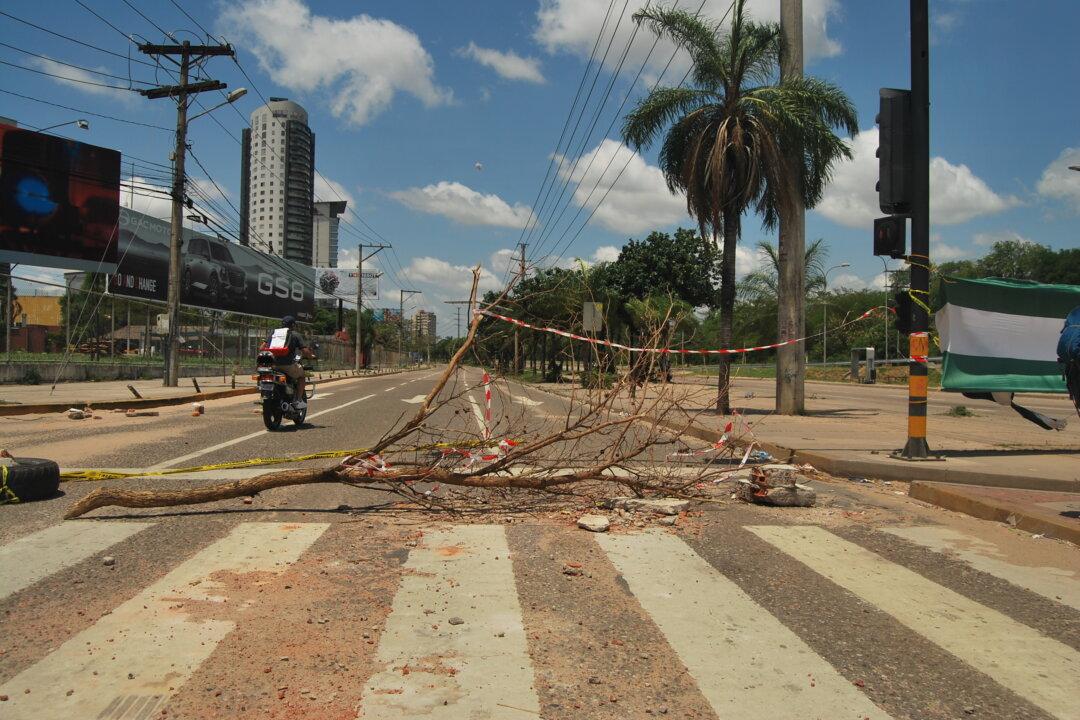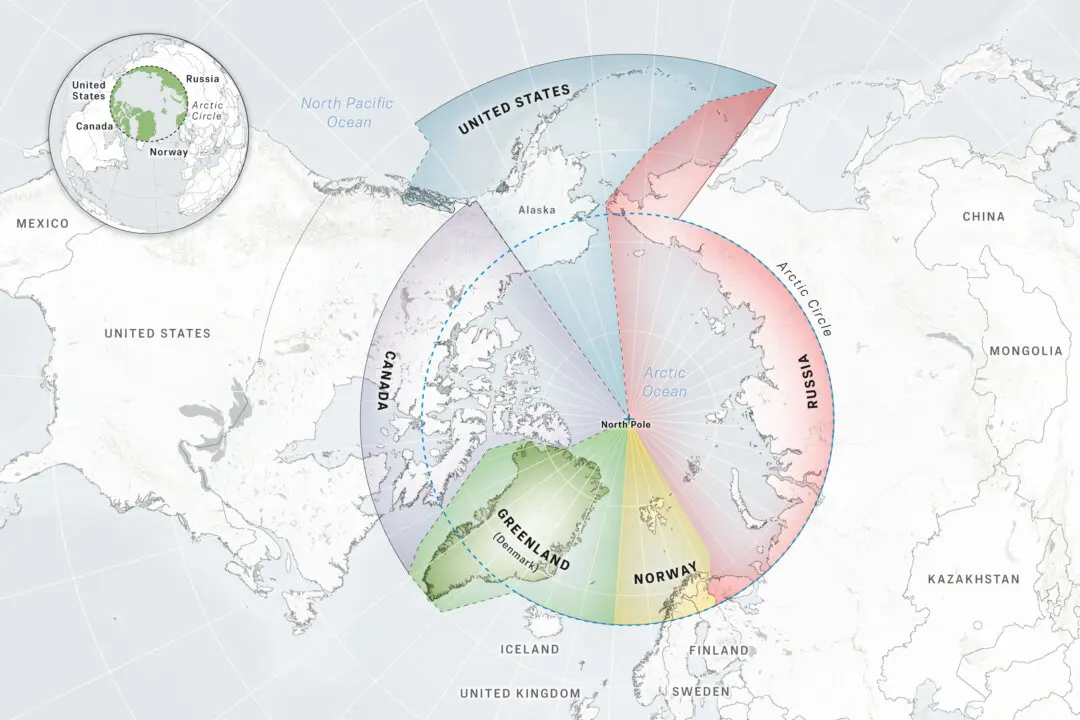Empty streets and closed store-fronts and offices stretch as far as the eye can see in Santa Cruz, Bolivia’s largest city. The normally traffic-clogged avenues remain vacant, save for the occasional biker or motorcycle.
The reason things have come to a standstill is because residents have erected roadblocks at dozens of intersections throughout the city, paralyzing transport and everyday commerce since Oct. 22.





